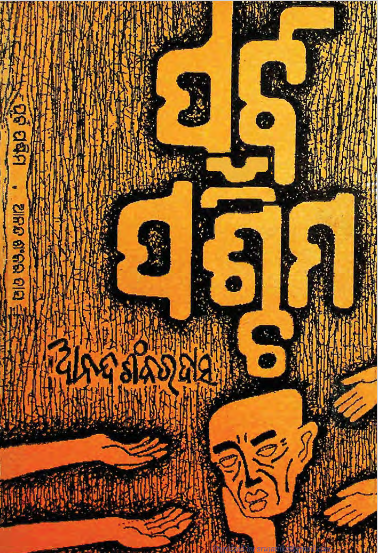Purba Paschima,authored by Anand Sankar Das and published in 2004, is a significant contribution to contemporary Odia drama that intricately weaves together themes of cultural identity, the clash of tradition and modernity, and the societal dynamics of Odisha. The play, characterized by its rich dialogue and compelling character arcs, invites audiences to explore the complexities of human relationships and the cultural nuances that define the regional ethos.
Set in a backdrop where Eastern (Purba) and Western (Paschima) influences intersect, “Purba Paschima” illustrates the transformative journey of its characters as they navigate the intertwined pathways of tradition and modernity. The narrative focuses on a family dealing with the generational tensions arising from differing views on culture, values, and aspirations. At its core, the play examines how globalization and modern societal norms challenge age-old traditions, leading to conflicts and reconciliations.
The characters in “Purba Paschima” are thoughtfully crafted, each representing varying perspectives on tradition and modernity. The protagonist, a young individual grappling with their identity amidst these conflicting influences, embodies the struggle of many in contemporary society. Supporting characters include traditional family members who strive to uphold the values passed down through generations, juxtaposed against the aspirational youth seeking to embrace modern ideals. Anand Sankar Das deftly portrays these characters through their dialogues, revealing their inner turmoil and the socio-cultural pressures they face.
A dominant theme in “Purba Paschima” is the dichotomy between tradition and modernity. Das captures the essence of cultural conflict, highlighting how the younger generation often faces the paradox of appreciating their heritage while being enticed by global influences. The play raises questions about the essence of identity and belonging—what it means to be rooted in one’s culture while engaging with the modern world.
Another notable theme is the concept of familial bonds and the intricate dynamics that shape them. The dialogues emphasize emotional connections and the influence of societal expectations on family relationships. Das’s exploration of these themes resonates with audiences, prompting reflections on their own cultural narratives, familial ties, and the evolving definitions of identity in a rapidly changing world.
Das employs a range of dramatic techniques to enhance the storytelling. The use of symbolism—such as traditional Odia motifs contrasted with modern elements—serves to visually reinforce the thematic conflict. Through well-timed humor and poignant moments, the playwright balances the weight of serious subjects with lighter interactions, making the drama accessible and engaging.
Purba Paschima stands as a mirror to society, especially in the context of Odisha, where the richness of culture often clashes with the influence of modernity. By addressing these dynamics within a dramatic framework, Anand Sankar Das not only entertains but also educates the audience on the importance of preserving cultural identity while embracing change.
With “Purba Paschima,” Anand Sankar Das has crafted a thought-provoking drama that resonates deeply within the socio-cultural landscape of Odisha. The play serves as a reminder of the necessity for dialogue between tradition and modernity, urging audiences to reflect on their own identities in a dynamic world. Its engaging narrative, relatable characters, and profound themes make it a significant work in the realm of Odia literature, ensuring its place in the annals of contemporary drama.
Books Info
| Books name | Purba Paschima |
| Author | Anand Sankar Das |
| No Of pages | 73 |
| Publisher | Chitrakala Prakashani |
| Publication | 2004 |
| Printed At | Laxmi Printex |
| Distributor | NA |

